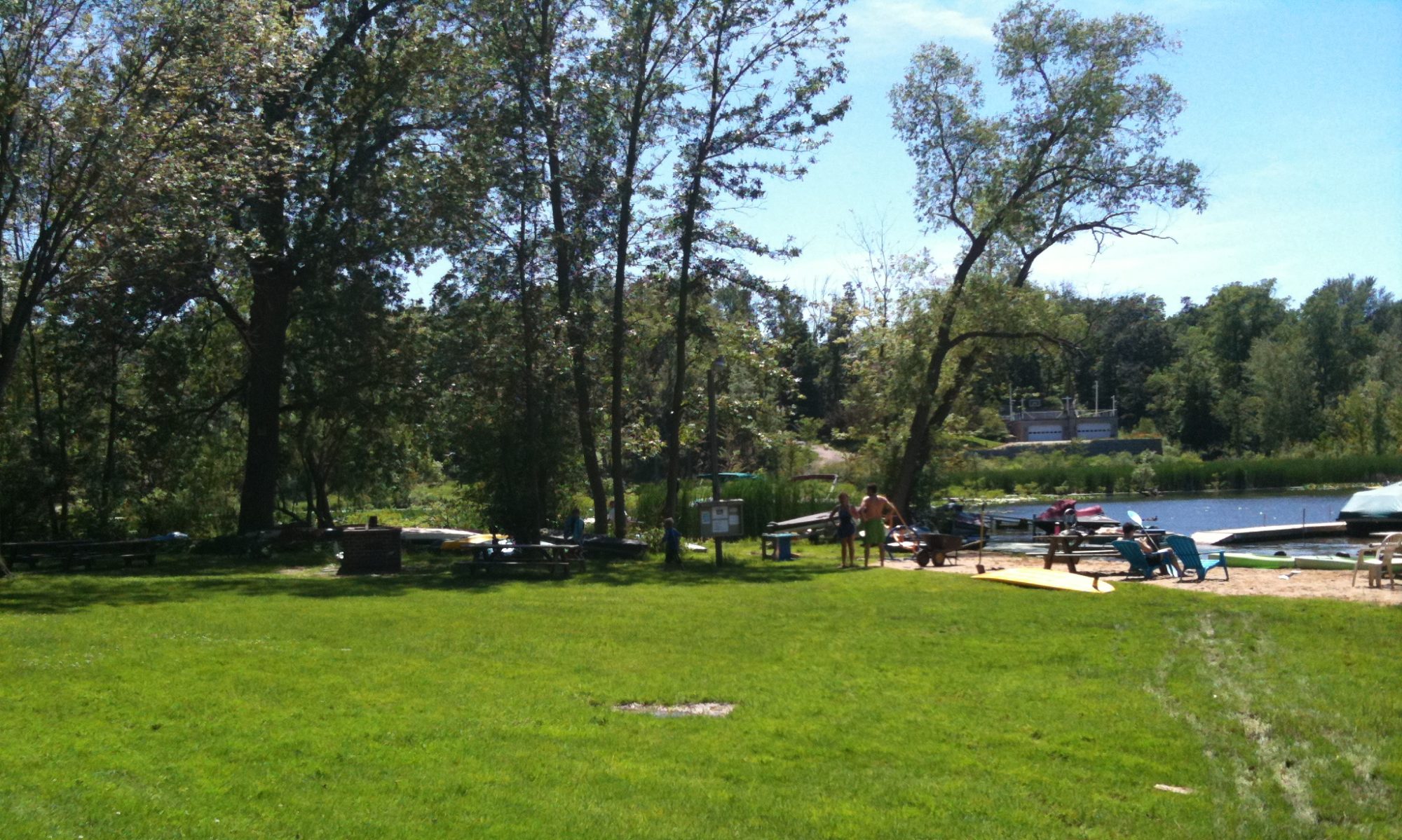Because of assurances that the GR TWP had no interest in an exclusive use arrangement, FRL moved forward with a suit. We hoped GR TWP would simply exercise their authority as steward of public property to resolve the situation simply. It was curious that they failed to do so. Legal precedent did allow for the FRL lawyer to “interplead” the township and call the supervisor forward in the court to at least go on record and admit ownership. This would in turn allow the court to proceed with a “declaration” that the land is indeed owned publicly. And then in turn, this would empower the court to make the necessary “injunction” that the WPA cease hostile and exclusive habitation of this public area. It was interesting that GR TWP wouldn’t avoid this entire process by making a simple phone call to the WPA to remind them this is public property. Instead, just as the court date was nearing, the township did a very curious thing to end the viability of the FRL case against the WPA. They entered into sudden and mysterious contractual leasing agreement with the WPA for $1100 / year.
Regarding FRL, this abruptly ended their case because this new lease ended the grounds by which the court could intervene. The court could no longer intervene now that the Township took an active and protective interest on behalf of the WPA. This required a withdrawal of the lawsuit and furthermore, the law requires that any official member of FRL can no longer be involved in a similar future case.
However, one very interesting thing occurred in this transaction. In making the lease agreement, the WPA has no possible grounds to make an argument of adverse posession. While this was largely a concocted feint to which the township pretended to yield, it nonetheless was a situation that could have cost a lot of money to contest and prove unviable. The WPA would likely have gummed this up in court for years hoping to exhaust FRL funds.
Now the WPA lacks all possible grounds for even the most basic principles of an adverse posession claim. They have conceded they do not “posess” it by virtue of leasing it. While the park is not “free” yet, we are one large step closer. The township can no longer hide behind the facade that they fear an adverse possession suit. The simplest path to freeing this park for public use would be to simply petition the Grand Rapids Township board to NOT renew the lease in 2013. If there is public desire for this the township could not pretend to fear the outcome if they didn’t renew it. It is our communal property and they are stewards charged with acting in public interest. However, barring this simple outcome, the other option is for residents of Grand Rapids Township to pursue this in court. A future case would no longer be made against the WPA but now interest would be directed toward the township.
It is the strong opinion of lawyers who have assessed the situation that a case of collusion can be made against the Grand Rapids Township. What currently stands is a lease contract between the WPA and the Township that ends in 2013. This in itself is not illegal – governments lease to private groups all the time. What is quite likely illegal is that it occurred in a cloaked manner and against strong public opposition. Furthermore it was not a lease opportunity offered equally to competing parties nor was it offered at a value that represents the public’s interest monetarily. Other taxpayers have been barred from using property they own without due process and without fair compensation. Furthermore, a select few have been awarded a limited public resource with the opportunity to independently govern this public property for their own privatized financial gain. There is a simple and strong legal case to be made against the Grand Rapids Township and it will simply take a leader within the Grand Rapids Township community to collect interest and bring it forward.
